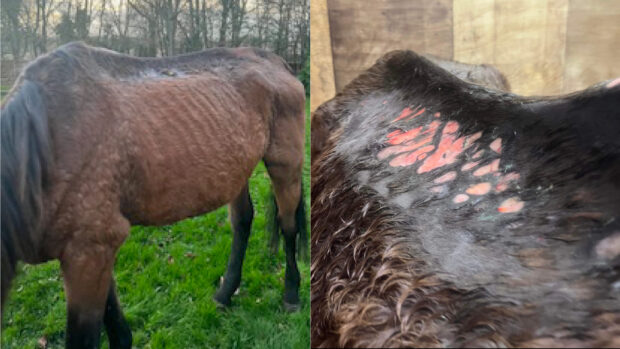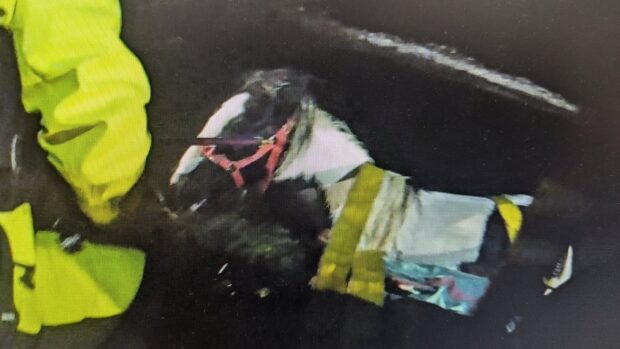Police will have a hard task enforcing the hunting act after it comes into effect later this month.
In a document addressed to all Assistant Chief Constables for Operations and leaked to the press, Assistant Chief Constable Nigel Yeo details the tactics, which the force will employ after 18 February. Yeo never says so openly, but the document conveys a sense that enforcing the Act will be fraught with problems.
“It is difficult to envisage a situation in which it will be practicable for police to intercept a hunt and persons in the act of hunting,” he writes. “Indeed, to do so, is likely to present considerable difficulties, both in executing such an action and discharging our duties to prisoners’ properties (including animals).”
Countryside Alliance’s spokesman, Tim Bonner, believes that “the document shows the government have allowed a bad piece of legislation to be passed and have put the police in a difficult situation. It is very unlikely that the police are going to intervene in a hunt and arrest people. What they are going to do, if they think illegal activities are going on, is to gather evidence.”
And indeed, Yeo suggests that police should gather significant evidence with a view to prosecuting people who hunt illegally. But collecting evidence will in itself prove difficult. Using helicopters to film videos “would be unwise”, because they may frighten horses, endangering riders and foot followers. “Equally, the viability of pursuing hunts on foot, horseback or in suitable vehicles, I would suggest, is slim,” writes Yeo.
The police will then have to rely on statements from the public, but this poses another problem. Telling legal and illegal hunting apart is hard enough for legal experts that members of the general public may easily get it wrong. “It is expected that the forces will receive a number of allegations from well-meaning members of the public alleging that hunting is going on in contravention of the ban,” warns Yeo.
Alistair Jackson of the MFHA hasn’t thoroughly reviewed the police document but expects that “a lot of people will be calling who got the wrong end of the stick. That’s the advantage of hunts telling the police what they are doing and where. It’s helpful if the police knows if hunts are trail hunting,” he says.
And indeed Yeo urges the police in his document to identify where and when legal hunting will take place “to discount well-meaning but inaccurate allegations,” and suggests to engage a “helpful dialogue” with legal hunts, legitimate anti-hunting organisations, the Crown Prosecution Services and landowners’ representatives at local level.
The police also expects hunt monitors from the International Fund for Animal Welfare to volunteer their help “to secure prosecutions relevant to anything they identify.” But this causes another major headache for constables throughout the country. First, because where legal hunting takes place, people interfering with the hunt would still be guilty of aggravated trespass. And, more importantly, because the proximity of anti-hunting activists and hunt followers risks causing “breaches of the peace.”
“I would feel that in the immediate aftermath of the implementation of the Act, this is likely to be the greater problem, and certainly has the greatest risk to public safety,” Yeo writes, suggesting that police should apply “the normal principles of public order policing and the conflict management model on such occasions.”
Bonner, however, disagrees that confrontation among the two groups may be a problem. “The idea that there is an army of anti-hunting activists policing the hunts is not realistic. There are very, very few of them. There is a handful of anti-hunting supporters across the country [who] will continue to attend meets after 18 February.”
Beyond any practical consideration, however, the police is clearly aware that the effort required to enforce the ban risks detracting resources from other tasks. He insists that “the police role is to enforce the law but the implementation of the Hunting Act must be set against other operational priorities facing the Chief Constable.”
Priorities and how policing the hunt ban fits in them should be assessed locally and subject to a regular review of their “community impact”. This is especially relevant in view of the fact that offences under the Hunting Act are not recordable or notifiable under the national crime recording standards and anyone convicted of these offences will not be assigned a criminal record and unique reference number from the National Identification Bureau.
Yeo suggests that the police should point out to the press and public that they “will enforce the law in the context of local priorities and set against other demands on police, bearing in mind that this has not been afforded high priority in the National Policing Plan, breaches of the Act are not themselves notifiable or recordable offences and not covered by national crime recording standards.”
Bonner puts it more succinctly: “Throughout the document, you can sense that the police have better things to be doing.”




